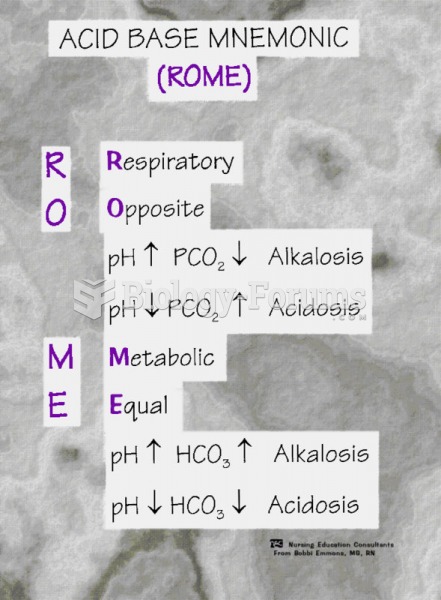|
|
|
Walt Disney helped combat malaria by making an animated film in 1943 called The Winged Scourge. This short film starred the seven dwarfs and taught children that mosquitos transmit malaria, which is a very bad disease. It advocated the killing of mosquitos to stop the disease.
Calcitonin is a naturally occurring hormone. In women who are at least 5 years beyond menopause, it slows bone loss and increases spinal bone density.
A recent study has found that following a diet rich in berries may slow down the aging process of the brain. This diet apparently helps to keep dopamine levels much higher than are seen in normal individuals who do not eat berries as a regular part of their diet as they enter their later years.
Excessive alcohol use costs the country approximately $235 billion every year.
Street names for barbiturates include reds, red devils, yellow jackets, blue heavens, Christmas trees, and rainbows. They are commonly referred to as downers.
 Common skin signs are often evidence of an illness or disorder. A wheal is a localized, evanescent ...
Common skin signs are often evidence of an illness or disorder. A wheal is a localized, evanescent ...
 Upward social mobility, though welcome, can place people in a world so different from their world of ...
Upward social mobility, though welcome, can place people in a world so different from their world of ...





